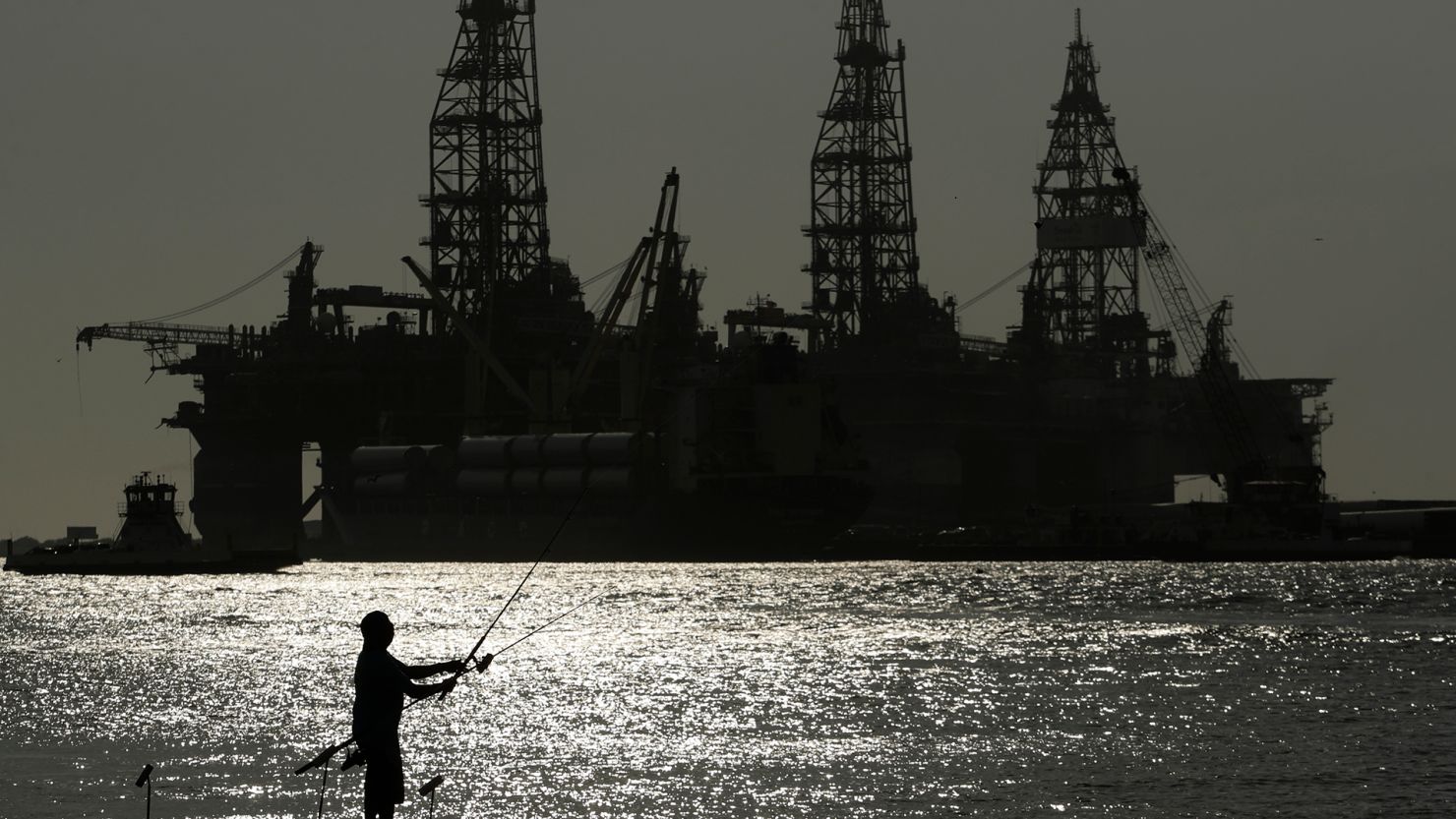A few weeks after allowing the controversial Willow oil drilling project in Alaska to go forward, the Biden administration is auctioning off more than 73 million acres of waters in the Gulf of Mexico to offshore oil and gas drilling.
It could be the first Gulf of Mexico lease sale under the Biden administration that actually results in new drilling, after previous auctions were embroiled in legal challenges and delays.
On Wednesday, the Interior Department’s Bureau of Ocean Energy Management will hold a lease sale for an area that’s more than double the size of the Willow Project in acreage. The administration was forced to hold the sale after Joe Manchin added it to the Inflation Reduction Act, the major climate and energy bill that President Joe Biden signed last year.
Of the 73 million acres offered by the Biden administration, companies signaled interest in bidding on 1.6 million acres, according to federal data posted Tuesday night.
Environmental groups have already filed a lawsuit to try to stop the lease sale, saying Interior’s environmental analysis is flawed. They also take issue with the size and scope of sale.
“There’s nothing in the IRA that required it to be so large,” said George Torgun, an attorney for Earthjustice, an environmental law group. “If it goes forward as planned, it’s double the size of Willow. It’s going to lock in fossil fuel development in the Gulf for the next 50 years.”
Earthjustice successfully sued to stop a similar project in the past. Last year, a federal judge invalidated an even larger Gulf oil and gas lease sale of 80 million acres, after finding that Interior’s environmental analysis didn’t adequately consider the climate impacts of adding millions of metric tons of planet-warming pollution to the atmosphere.
In its environmental analysis for the current lease sale, the Biden administration estimated the oil and gas drilling from this sale could emit about 21.2 million metric tons of carbon dioxide.
An Interior Department spokesperson declined to comment on the sale.
“We’re really disappointed we didn’t see something lesser in scope, this is basically offering up most of the Gulf,” Torgun said. “It’s another massive lease sale.”
Difficult politics on leasing
Though Wednesday’s drilling auction was not the first under the Biden administration, it could be the first to stick.
It follows a messy and protracted legal battle over another 80-million-acre lease sale it offered in 2021, after a Louisiana judge tossed Biden’s attempt to ban new oil and gas leasing on federal land and water. Interior ultimately canceled those leases, citing the delays due to “conflicting court rulings.”
Manchin, who helped spearhead the Inflation Reduction Act, specifically wrote into the law provisions that required Interior to hold new oil and gas lease sales in the Gulf and Cook Inlet in Alaska. Wednesday’s sale won’t be the last; another sale is scheduled for September.
Wednesday’s lease sale comes after the Biden administration’s controversial decision to greenlight the Alaska oil drilling Willow project.
Amid an outcry on social media among young voters and climate groups, the administration ultimately said it had few options other than to approve the project. Biden called approving Willow a “difficult decision” and said he’d initially leaned toward blocking it.
“My strong inclination was to disapprove of it across the board,” Biden said last week in Canada. “But the advice I got from counsel was that if that were the case, we may very well lose in court. And lose that case in court to the oil company.”
The Gulf of Mexico auction comes as global oil markets are still in tumult, rife with investors uneasy about lingering impacts from the war in Ukraine and the threat of recession, said Bob McNally, an energy consultant and president of Rapidan Energy Group.
“The main reason oil investors are and have been reluctant to invest – I would say 80% of it, has to do with these fundamental issues,” McNally said. “It’s not because Joe Biden said there’s no [new] leasing. The political factor is there, but it’s not the main reason holding them back.”
This story has been updated with more information.
CNN’s Kevin Liptak contributed to this report.





